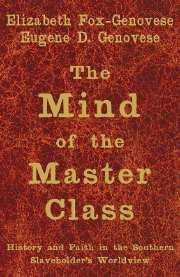Book contents
- Frontmatter
- Contents
- Preface
- List of Abbreviations
- Prologue
- PART ONE CRADLED IN THE STORMS OF REVOLUTION
- 1 “That Terrible Tragedy”
- 2 The Age of Revolution through Slaveholding Eyes
- 3 “The Purest Sons of Freedom”
- Entr'acte: The Bonds of Slavery
- PART TWO THE INESCAPABLE PAST
- PART THREE ANCIENT LEGACIES, MEDIEVAL SENSIBILITY, MODERN MEN
- PART FOUR A CHRISTIAN PEOPLE DEFEND THE FAITH
- PART FIVE AT THE RUBICON
- Epilogue: King Solomon's Dilemma
- Supplementary References
- Index
3 - “The Purest Sons of Freedom”
Published online by Cambridge University Press: 05 June 2012
- Frontmatter
- Contents
- Preface
- List of Abbreviations
- Prologue
- PART ONE CRADLED IN THE STORMS OF REVOLUTION
- 1 “That Terrible Tragedy”
- 2 The Age of Revolution through Slaveholding Eyes
- 3 “The Purest Sons of Freedom”
- Entr'acte: The Bonds of Slavery
- PART TWO THE INESCAPABLE PAST
- PART THREE ANCIENT LEGACIES, MEDIEVAL SENSIBILITY, MODERN MEN
- PART FOUR A CHRISTIAN PEOPLE DEFEND THE FAITH
- PART FIVE AT THE RUBICON
- Epilogue: King Solomon's Dilemma
- Supplementary References
- Index
Summary
There never was a Government on the face of the earth, but what permitted slavery. The purest sons of freedom in the Grecian Republics, the citizens of Athens and Lacedaemon, all held slaves.
—U.S. Rep. James Jackson of Georgia (1790)Until recently, peoples of every race and continent lived in a world in which slavery was an accepted part of the social order. Europeans did not outdo others in enslaving people or in treating slaves viciously. They outdid others by creating a Christian civilization that eventually stirred moral condemnation of slavery and roused mass movements against it. Perception of slavery as morally unacceptable – as sinful – did not become widespread until the second half of the eighteenth century. Slavery, not merely serfdom, existed in Western and Central Europe as late as the Renaissance and in Russia until the mid-nineteenth century.
Neither slavery nor serfdom was racially determined. From ancient times Europeans had recruited slaves without regard to race, and whites overwhelmingly predominated among the millions of slaves held within Europe. When European overseas expansion in the fifteenth century made Africa the principal source of slaves, slavery became identified with racial stratification. Muslims and then Christians entered Africa and carried off enormous numbers, largely sold to them by other Africans. Over time Muslims, too, increasingly identified slave status with blackness, although less rigorously than Christians did. During the next four centuries it was in the vast plantation system of the Americas that both the critique and the defense of slavery came to focus on racial as well as class stratification.
- Type
- Chapter
- Information
- The Mind of the Master ClassHistory and Faith in the Southern Slaveholders' Worldview, pp. 69 - 87Publisher: Cambridge University PressPrint publication year: 2005
- 1
- Cited by



